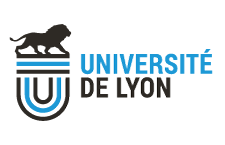ECOFECT > Presentation > Teams
Evolutionary Genetics of Host-Parasite Interactions
UMR 5558
- Address :
- Biometry and Evolutionary Biology Laboratory (LBBE)
- Email :
- patricia.gibert@univ-lyon1.fr
- Trusteeship :
- UCBL, CNRS, INRIA, VetAgro Sup
Organization
Team leader: Fabrice VavreAxe(s) of research
The team develops community genetics approaches on insect communities encompassing hosts, their parasitoids and their symbionts. We study co-evolutionary processes in these multi-partner systems using evolutionary genetics including theory, experimentation on various arthropod systems, field surveys and comparative analyses. Biotic and abiotic environmental variations, of natural or of human origins (global change, insecticides) are also taken into account. We are currently engaged in developing genomics, transcriptomics and functional approaches on host-symbiont interactions.
Our focus on insect-symbionts interactions is of special interest in the context of Ecofect. Indeed, insect biology has been revolutionized by the discovery that these symbionts play a major role in the biology of their hosts (notably their interaction with pathogens) and participate actively to their adaptation and to structure their populations. Current developments indicate that these symbionts may offer new strategies for controlling arthropod populations or their ability to transmit pathogens. As such, we develop since a few years studies on the role of endosymbionts in adaptation and vector competence in pest and/or vector species (Bemisia tabaci, ticks). In addition, we recently identified that Coxiella burnetii, the agent of Q fever, has emerged among a clade of endosymbiotic bacteria of ticks. We are currently studying the factors that allowed the emergence of pathogenicity in this clade.
Key words: Arthropods, Endosymbionts, (Co)evolution, Molecular epidemiology, Evolutionary genetics, Genomics
Our focus on insect-symbionts interactions is of special interest in the context of Ecofect. Indeed, insect biology has been revolutionized by the discovery that these symbionts play a major role in the biology of their hosts (notably their interaction with pathogens) and participate actively to their adaptation and to structure their populations. Current developments indicate that these symbionts may offer new strategies for controlling arthropod populations or their ability to transmit pathogens. As such, we develop since a few years studies on the role of endosymbionts in adaptation and vector competence in pest and/or vector species (Bemisia tabaci, ticks). In addition, we recently identified that Coxiella burnetii, the agent of Q fever, has emerged among a clade of endosymbiotic bacteria of ticks. We are currently studying the factors that allowed the emergence of pathogenicity in this clade.
Key words: Arthropods, Endosymbionts, (Co)evolution, Molecular epidemiology, Evolutionary genetics, Genomics
Domains
(Co)evolution
Molecular epidemiology
Evolutionary genetics and genomics
Molecular epidemiology
Evolutionary genetics and genomics



 Welcome
Welcome Communication
Communication Contacts
Contacts Job offers
Job offers links
links WebAdmin
WebAdmin